Are You Self-Employed? Here’s How to Prepare for Tax Time and Avoid Getting Into Tax Debt
One of the biggest stories in the world of business is the growing shift toward self-employment. An ever-increasing number of employees are saying goodbye to their colleagues, cubicles, and corporate overlords, and choosing instead to make their own way in life.
If you are one of these self-employed individuals or a new member of the gig economy, tax filing season could be more complicated than you think. Instead of merely plugging in the numbers from your W2, you will need to gather multiple forms, crunch the numbers, seek out deductions and look for solutions to tax problems you did not even know existed.
Faced with those difficulties, you will want to start your tax planning early. Here is a step-by-step plan for making the April 15 tax filing deadline a little bit less daunting.
Note: If you find yourself in tax debt, owe back taxes or are under audit, our firm can help negotiate with the IRS and potentially settle your tax debt. As a tax resolution firm, we always recommend that you reach out to a professional who knows how to aggressively negotiate and defend you against the IRS on your behalf. Call us today at 1.888.4TaxRez. Our tax resolution specialists can navigate the IRS maze so that you have nothing to worry about.
Verify Your Advance Tax Payments
The only thing worse than paying money to the IRS is not getting credit for it. As a self-employed individual or gig worker, you have probably made advance payments to the tax agency on a quarterly basis, so dig out those canceled checks, grab those receipts and get ready for tax time.
When you file your taxes, you will need to input the dates you submitted those quarterly payments, and those days may or may not coincide with the formal schedule laid out by the IRS. Keep in mind that a small inaccuracy could create a big problem, so gather the documentation and get it right.
Add Up Your Income
Even if you are relying on your clients to issue 1099 forms, it is a good idea to record your income on your own. Keep in mind not all clients may issue 1099s, and the ones that do could report inaccurate or incomplete figures. By keeping track on your own, you will be able to catch any potential problems early and while replacement forms can still be issued.
Adding up your income will also serve a number of other purposes, each important to your timely tax filing and the maximizing of your hoped-for refund. For one thing, knowing how much you earned will allow you to maximize retirement plan contributions aimed at the self-employed, a big potential savings you might otherwise miss out on. Adding up your earnings will also allow you to estimate your tax due or refund, giving you time to prepare and helping you avoid an unpleasant shock when April 15 rolls around.
Tally Your Expenses
The world of self-employment can be taxing, but there are also potential savings to be had. As a self-employed individual or member of the gig economy, you may be able to write off everything from office supplies and furniture to computers and gasoline for your car.
Now is the time to tally your expenses so you do not miss out on a valuable deduction when filing season rolls around. Be sure to look at expenses that may have been paid automatically as well, including recurring payments for routine costs like internet access and phone service.
Seek Out Additional Deductions
The calendar year may be over, but you still have time to reap some valuable deductions. Now that you know how much you have earned in self-employment income, you have the opportunity to seek out new deductions and maximize the ones you have already taken.
If you participate in a retirement program for the self-employed, for instance, you can contribute additional money up to the tax filing deadline, giving you a chance to pile current earnings in and apply them against the taxes that would otherwise be due. These generous tax breaks for retirement savings are among the most valuable for the self-employed, and you still have time to take advantage of them.
It goes without saying that you should consult a tax expert for specific questions about retirement plan contributions, possible deductions, and other applicable subjects. Even if you plan to file your own taxes, consulting with an expert could save you a lot of money.
Run the Numbers through a Tax Estimator
For many in the self-employed community, early filing is simply not an option. If you have investments in a brokerage account, for instance, you may not receive the tax forms you need until well into February or even March, making tax planning that much more difficult.
The fact that your personal tax filing season will likely be delayed is certainly frustrating, but it does not mean you cannot run the numbers on your own. You can estimate your tax bill online using the figures you have already compiled, giving you a good idea of what to expect when the real filing season rolls around.
A number of tax preparation companies, including big names like H&R Block and Intuit, provide free online calculators, so you can assess your tax situation well in advance. If you prefer, you can simply enter the numbers you do have into your favorite tax filing software program for a fast and easy estimate.
Ease the stress of a stressful season
Tax filing season is stressful for nearly everyone, but it can be a particularly challenging time for gig workers and the self-employed. From chasing down forms from reluctant clients to finding deductions that will lower the tab, the self-employed and members of the gig economy must overcome many hurdles by the time the tax filing deadline rolls around, and the sooner they get started the easier their lives will be. The tips listed above will help you slay your own personal tax demons, so you can rest easy and focus on building your business.
If you find yourself a large surprise tax bill or a collection notice from the IRS, the steps you take next are absolutely critical. Trying to take on the IRS on your own is a dangerous, and potentially expensive, thing to do, and you should always contact a tax resolution firm.
By working with an expert, you can gain access to vital information about small business settlement programs the IRS offers. You can gain access to the expertise you will need to settle your tax bill for less than you owe and get back in the good graces of the IRS. Time is of the essence when the IRS comes calling, and with the interest and penalty clock ticking you do not have one second to waste. Call us at 1.888.4TaxRez, your tax resolution pros, for a case evaluation.

